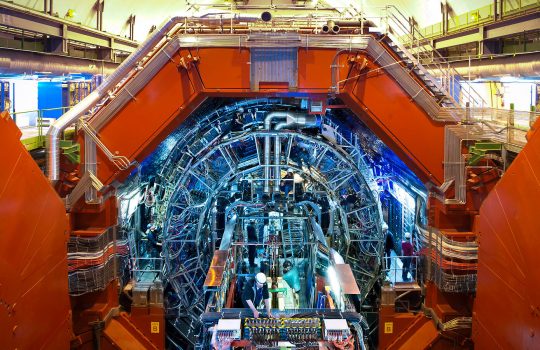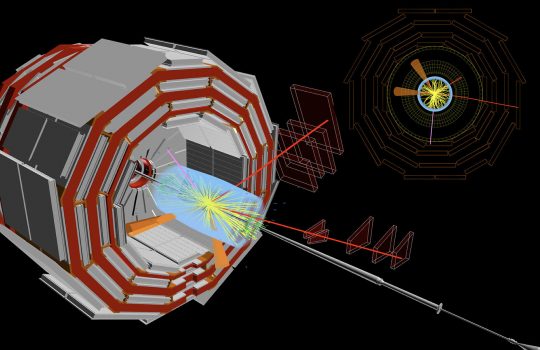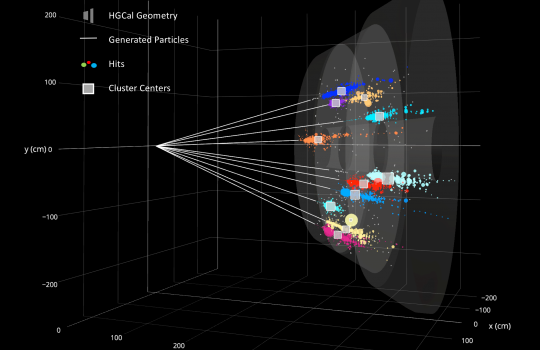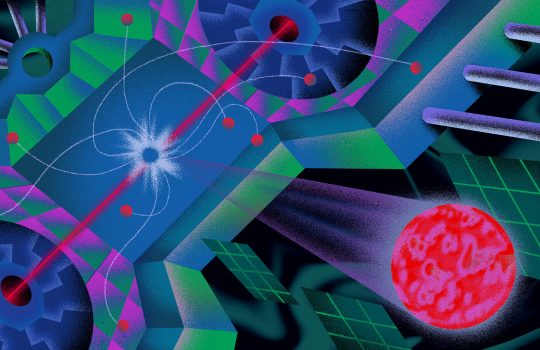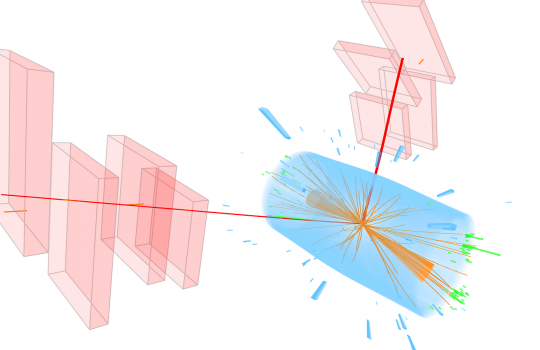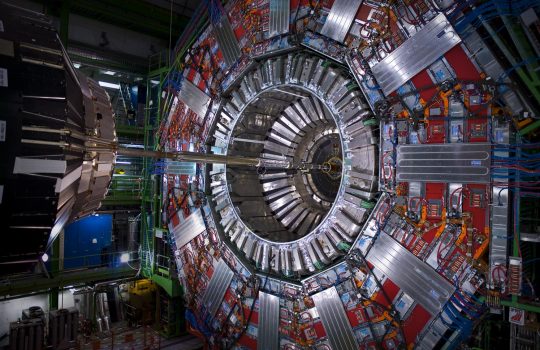Simulating subatomic physics on a quantum computer
When two heavy ions collide inside a particle accelerator, they produce a near-perfect fluid through which an assortment of fundamental particles swim. For scientists to accurately simulate even a tiny drop of this hot and dense subatomic brew with a classical computer, it would take longer than the age of the universe. Scientists show how quantum computing could be a game-changer in our understanding of quantum processes.

